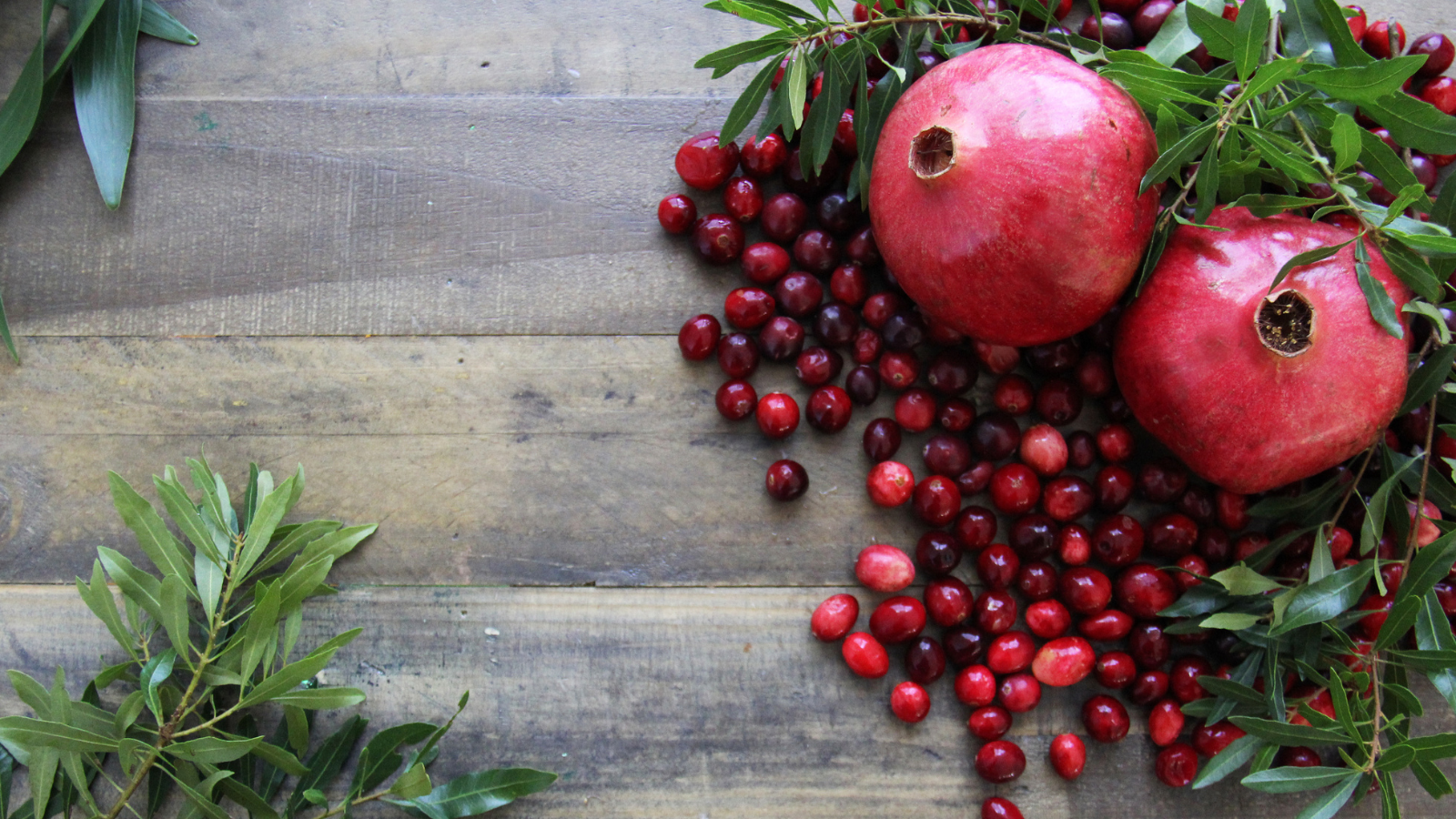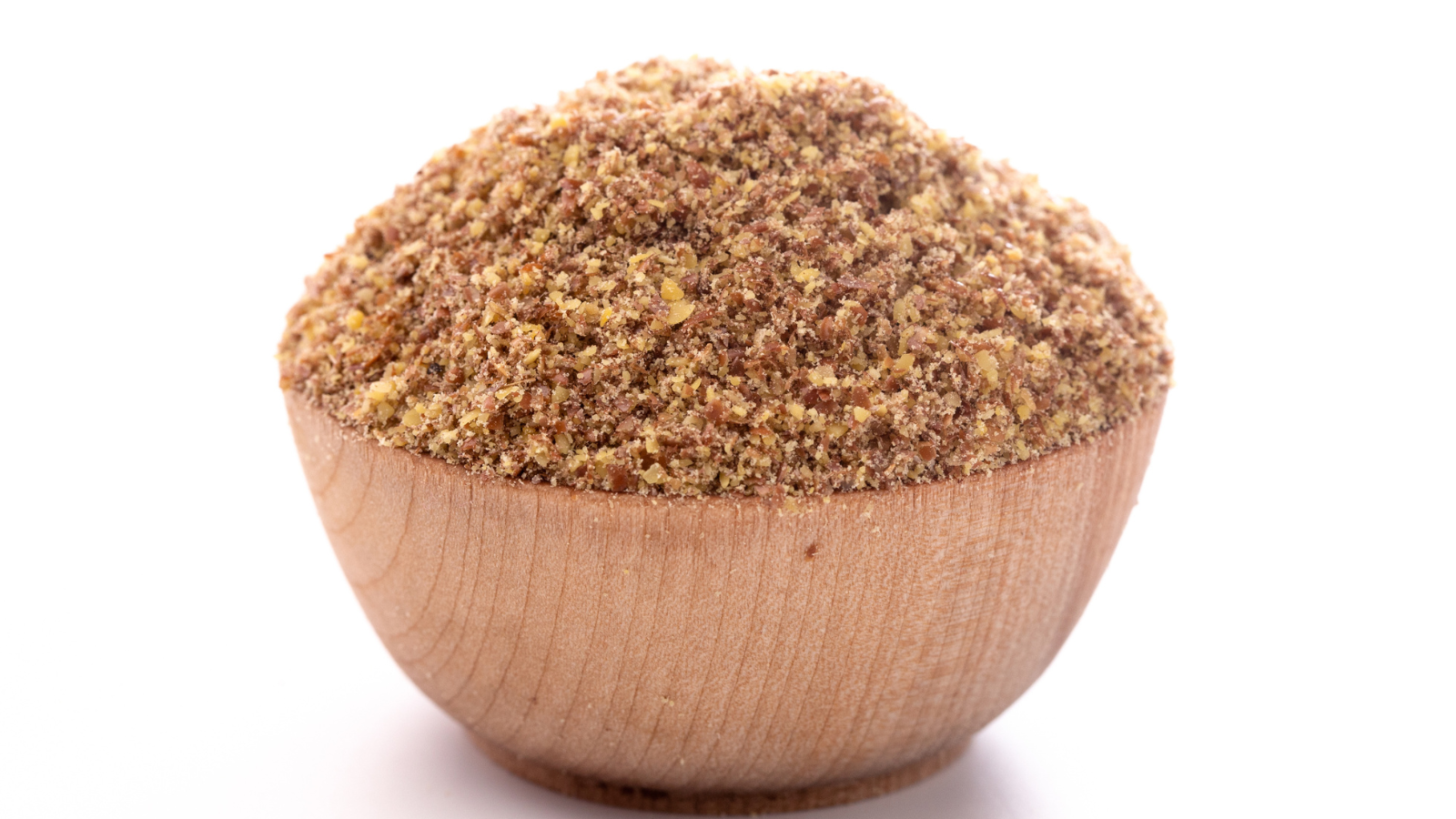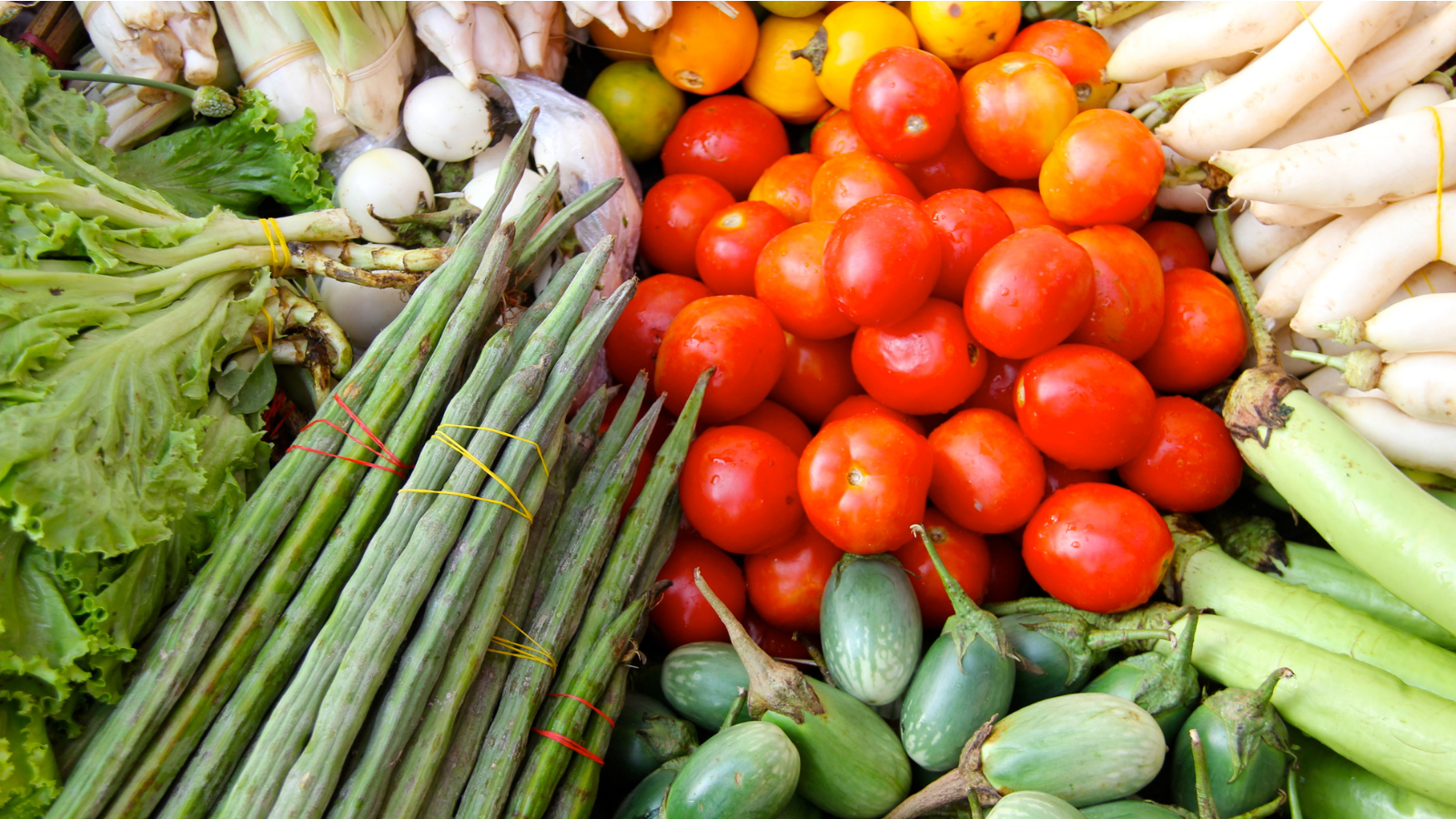One of the Bible’s tenets is that our body is the temple of the Holy Spirit. As such, we should honor it by eating healthy foods.
However, some foods described in the Bible also have symbolic and spiritual significance. The Holy Book mentions clean and unclean foods. Clean foods benefit our bodies and spirits and should be the mainstay of our diets.
Here, we curated the most important 15 foods of spiritual significance in the Bible.
1. Salt

“Salt is good: but if the salt has lost his saltness, wherewith will ye season it? Have salt in yourselves, and have peace one with another.” Mark 9:50
Salt is important to nutrition because food is tasteless without it. Likewise, if we’re “unsalted,” we miss our connection with our spiritual selves, as the above quotation from Mark shows.
So, how do we ensure we don’t lose our “saltiness?” We need to make peace with our beliefs and our friends and neighbors. We must put things into perspective and season our relationships like we do our foods — in moderation. That way, we can stay connected with our core and have “peace with one another.”
2. Olives

“One day the trees went out to anoint a king for themselves. They said to the olive tree, ‘Be our king.’” Judges 9:8
Olives are an incredible gift that the Bible recognizes as a food source, medicine, and the abiding presence of God. Olive oil is a great source of antioxidants and a healthy fat.
Yet the symbolism of the olive and the olive tree goes beyond this miracle fruit’s health benefits. The olive branch symbolizes hope and peace. Scripture also links olives and olive oil with the welcoming of kings vetted by God.
To reap all the benefits of olives, we should consume olive oil as part of a Mediterranean diet and honor the olive tree’s longevity and abundance, which show how God provides for us.
3. Manna

“When the Israelites saw it, they said to each other, “What is it?” For they did not know what it was. Moses said to them, “It is the bread the Lord has given you to eat.’” Exodus 16:15
While experts debate what manna is, and the Bible calls it the “bread of heaven” and “spiritual meat,” the symbolism of this supernatural food is rich. It directly references how God provides for us by raining spiritual sustenance on us from heaven.
But is manna real? According to some, it is, and some even cook with it. Manna is dried plant sap and honeydew — related to tiny bugs that consume plants. According to those who use it, manna has a sweet, salty balance and a delectable crunch.
4. Bread

“Give us this day our daily bread.” Matthew 6:11
“Man does not live by bread alone, but by every word that comes from the mouth of God.” Matthew 4:4
There is no more direct symbolism of God’s benevolence and the sustenance we can receive through daily prayer and contemplation than bread. It is a gift from God — it symbolizes God’s Word and became Christ’s body at the Last Supper.
As for its non-spiritual nutrition, bread contains fiber, which is useful for digestion and gut health. However, for the best results, avoid highly processed bread with additives like sugar, which are unhealthy. Choose the unadulterated bread referenced in the Bible, and your body will thank you.
5. Calf

“Bring the fattened calf and kill it. Let’s have a feast and celebrate.” Luke 15:23
Like its parent, the bull, the calf symbolizes sacrifice, strength, and fertility. For the Israelites who witnessed God’s power on their escape from Egypt, the calf also symbolized their recognition of his vast power.
Beef has a host of health benefits. It’s rich in zinc and iron and is a great source of protein. Beef tallow also contains conjugated linoleic acid (CLA), which is useful for weight loss, among other benefits.
To summarize, beef protein is highly nutritious, and a feast that includes beef recognizes its symbolism of rejoicing in God’s power.
6. Lamb and Sheep

“He will put the sheep on his right and the goats on his left.” Matthew 25:33
“Tell the whole community of Israel that on the tenth day of this month each man is to take a lamb for his family, one for each household.” Exodus 12:3
Setting the sheep on the right suggests that they are beloved to God. That is why the Bible often compares Christ to a lamb. Sheep are sacrificial animals that symbolize innocence and forgiveness. However, as the Resurrection shows, lambs also have a triumphant connotation.
Much like beef, lamb is a great source of protein and has health benefits, including CLA and vitamin B12, which can promote muscle growth and prevent anemia.
7. Butter

“For as churning cream produces butter, and as twisting the nose produces blood, so stirring up anger produces strife.” Proverbs 30:33
As the above Proverbs quote suggests, churning milk provides butter, the opposite of blood. As such, butter is sustenance through God’s wisdom. Butter has a positive connotation in the Bible, signifying God’s goodness and generosity as a blessing to us.
Once blamed for high cholesterol, butter has regained the favor of health experts because of its high vitamin A, antioxidant, and vitamin D content. If you want to reap its benefits, you’ll be happy to know you’re eating as the Bible intended, which is not true when you replace it with margarine.
8. Milk

“Come, all you who are thirsty,
come to the waters;
and you who have no money,
come, buy and eat!
Come, buy wine and milk
without money and without cost.” Isaiah 55:1
If butter symbolizes sustenance from God, the same can be said about milk, if not more. In the Bible, milk symbolizes abundant blessings from God because it’s versatile and easily turns into butter and cheese curds. It is “without price.”
However, if you’re lactose-intolerant, like me, you may not be able to enjoy the benefits of whole milk. Nevertheless, most of the population can continue drinking their milk before bedtime when they reflect on God’s generosity because it leads to better sleep.
9. Honey

“How sweet are your words to my taste, sweeter than honey to my mouth!” Psalm 119:103
It makes sense that we follow up milk with honey. After all, who hasn’t heard of the land of milk and honey? Honey often signifies prosperity in the Bible but is also associated with God’s gifts to us and his grace.
Although honey contains sugar, it’s also one of the few completely unprocessed foods we can eat. In moderation, it’s good for us, helping us battle illness and soothe sore throats. Honey may be the best proof of God’s all-encompassing power because it comes directly from nature and the dance of the bees.
10. Fish

“Jesus said to them, “Bring some of the fish you have just caught.” So Simon Peter climbed back into the boat and dragged the net ashore. It was full of large fish, 153, but even with so many the net was not torn.” John 21:10-11
During early Christianity, the fish symbolized Christ as the Savior, and Christians recognized each other by wearing fish jewelry and markings. The Bible also recognizes fish as a source of nourishment and faith, as shown above. Jesus was able to feed everyone with fish and bread.
Fish is also a great source of nutritional sustenance. It’s rich in omega-3 acids, calcium, iodine, and vitamin D. All these nutrients are good for your heart, and the American Heart Association recommends eating fish at least twice a week.
11. Wine

“And the master of the banquet tasted the water that had been turned into wine. He did not realize where it had come from, though the servants who had drawn the water knew. Then he called the bridegroom aside.” John 2:9
Wine has different symbolisms in the Old and New Testaments. In the former, it signifies abundance and blessings from God. In the New Testament, it shows the power of miracles, as Jesus turns water into wine. It symbolizes the new covenant between Jesus and his apostles during the Last Supper.
Research shows that wine is beneficial for health when drunk in moderation. It lowers bad cholesterol and keeps blood vessels healthy. Drinking one glass of wine with your dinner can improve your mood and let you enjoy a stress-free evening.
12. Pomegranates

“Your plants are an orchard of pomegranates with choice fruits, with henna and nard.” Song of Songs 4:13
As Solomon’s Song of Songs suggests, pomegranates symbolize love in Biblical marriage. The young bride’s blush is reminiscent of her purity and love. Pomegranates also signify fertility because of their abundant seeds. Abundance and fruitfulness come from God, and pomegranates represent them in the Bible.
Pomegranates are also a powerhouse of nutrition. Their delicious taste hides anti-inflammatory and antibacterial properties. They are also great for your skin and have anti-cancer properties. There’s no better way to use Biblical nutrition to finish a meal than with these beautiful and delicious fruits.
13. Flax

“A wife of noble character who can find? She is worth far more than rubies… She selects wool and flax and works with eager hands.” Proverbs 31:10, 13
People primarily used flax to make linen, which symbolizes the truth that covers the inner self — a truth that comes from God and shows the world our true selves. Flax has a dual purpose in the Bible as both cloth and food.
People consume flaxseed because of its omega-3 essential fatty acid and fiber content. Research has found that flaxseed may reduce the growth of breast cancer tumors and other forms of cancer.
14. Bitter Herbs

“That same night they are to eat the meat roasted over the fire, along with bitter herbs, and bread made without yeast.” Exodus 12:8
While not everyone agrees, bitter herbs usually refer to salad greens like dandelion, sorrel, and old types of lettuces. These plants would have been abundant in Egypt at the time referenced in Exodus, and by partaking in them, the Israelites would enrich their diet with everything the land offered — a principle that follows the rules of the Bible.
Lettuce is a great source of vitamin A and ensures the health of eyes, bones, and skin. It is also a good source of folate, one of the nutrients required for healthy and successful pregnancies.
15. Vegetables

“Please test your servants for ten days: Give us nothing but vegetables to eat and water to drink.” Daniel 1:12
The Bible suggests that we eat a simple diet of clean meat and vegetables to maintain our physical and spiritual health without excesses. Vegetables are the easiest to cultivate and maintain, and they ensure that our diet isn’t lacking in nutrients and vitamins.
For example, cruciferous vegetables, like arugula, cauliflower, and broccoli, prevent cancer and alleviate inflammation and viral and bacterial infections. Eating plenty of these vegetables with every meal carries no risks.
10 Common Bible Misconceptions Too Many People Believe

Of all the books in history, the Holy Bible is among the most available and most translated. For a text this ancient and common, it is surprising to realize that there is a lot of faulty thinking surrounding it.
Even lifelong Christians can be told one way of viewing Scripture and cling to that belief without realizing that it is tradition or cultural rather than truly Biblical.
Here are 10 common misconceptions about the Bible way too many people believe that can create confusion and withhold a deeper enjoyment and trust in God’s Word.
10 Common Bible Misconceptions Too Many People Believe
14 “Biblical” Details You Won’t Find Anywhere in the Bible

The Bible may be the bestselling book of all time and translated into almost every language known to man, but that doesn’t stop many misconceptions from springing up.
Biblical myths can take hold in our understanding of what the Bible says and misinform how we view Scripture.
From the Trinity to Jonah and the whale to Eve and the apple, here are 14 commonly accepted and widely repeated biblical “facts” you won’t find anywhere in the Bible.

